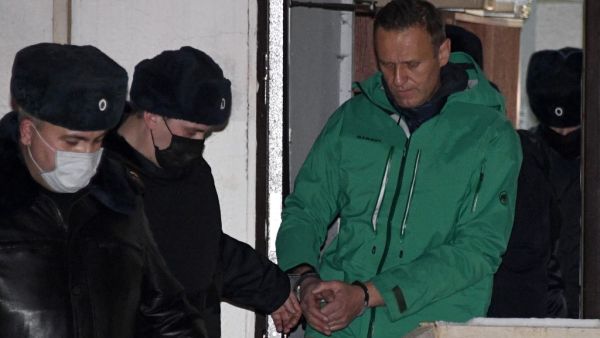A Russian court ruled Monday that opposition politician Alexey Navalny will be kept in custody until Feb. 15, less than 24 hours after his return to the country.
“Alexey Navalny was detained for 30 days until Feb. 15, 2021,” Vadim Kobzev, a lawyer for Navalny, announced on Twitter.
Russian opposition leader Alexei Navalny posts a video online urging Russians to take to the streets to protest against the government after being arrested upon landing back in Moscow from Berlin. https://t.co/Tzo4PM6pyM
— NBC News (@NBCNews) January 19, 2021
Navalny, who received treatment in Germany after alleged poisoning, was arrested in the capital Moscow upon his return Sunday evening. He was held at a police station in the city of Khimki.
Moscow’s Khimki Court ruled that he will remain in custody for violating the probation period that ended on Dec. 29 last year.
Navalny, 44, a fierce critic of Russian President Vladimir Putin, fell sick last August on a flight to Moscow. After an emergency landing in the Siberian city of Omsk, he spent two days in a Russian hospital before being sent to Berlin for treatment.
After tests in several laboratories, German officials said Navalny was poisoned with the nerve agent Novichok, which was also used according to the UK government in a 2018 attack on former Russian spy Sergei Skripal and his daughter in the British town of Salisbury.
Russian opposition leader Alexei Navalny called on his supporters to protest after he was arrested at a Moscow airport.
— NPR (@NPR) January 18, 2021
"Don't be afraid. Take to the streets. Don't do it for me, do it for yourselves and your future," Navalny said in a YouTube video. https://t.co/p0lC4eHoFz
Russian authorities deny any involvement in the case and contend that chemical weapons have neither been developed nor produced by Russia since the last chemical round was destroyed in 2017, as verified and certified by the Organization for the Prohibition of Chemical Weapons.
This article has been adapted from its original source.








